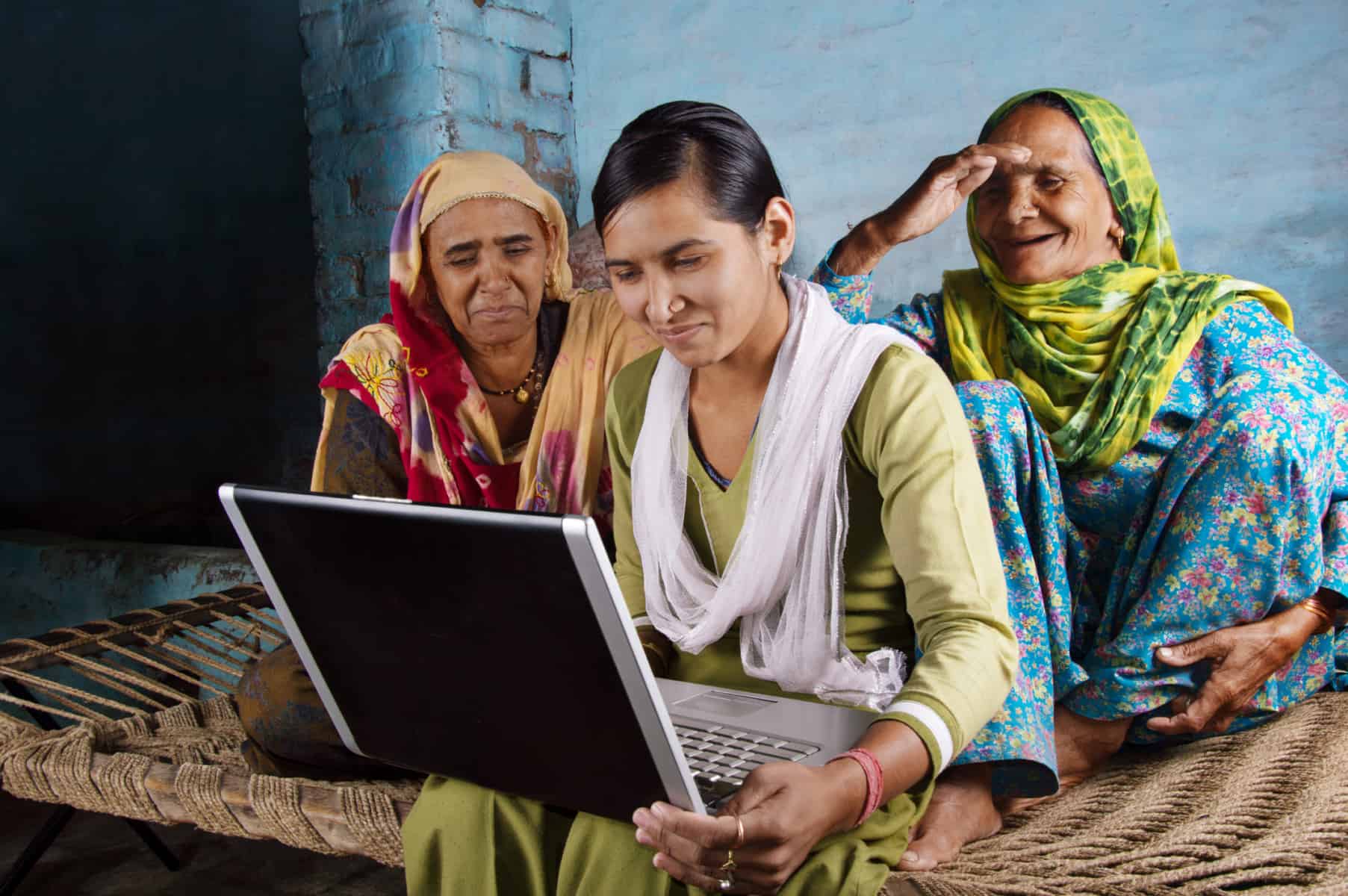India witnessed the highest number of internet shutdowns in the world – a total of 134 instances in 2018, surpassing Pakistan (which recorded 12 instances, followed by Iraq and Yemen at 7 each). Many are concerned that the state of individual freedoms in the world’s largest democracy should be compromised. Curbing digital freedoms in India by implementing internet shutdowns has potential global implications, and building effective coalitions between businesses and civil society could help to address them.
Exactly one year ago to the day – on 5th August 2019 – communications restrictions were brought into effect following the abrogation of Article 370 of the Indian constitution. This had granted special status to Jammu and Kashmir upon its accession to a newly independent India in October 1947, allowing for greater autonomy in state-level decision-making. Jammu and Kashmir has been in a unique position as the only Muslim-majority territory in Hindu-majority India. It has been the site of high levels of violence stemming from a long-standing border conflict with Pakistan, and a Kashmiri separatist insurgency. This preemptive internet shutdown in Jammu and Kashmir, which lasted in full effect for seven months, is the longest ever witnessed in any democracy around the world.
India’s Supreme Court ruled in January 2020 that the government should review these restrictions, and that the suspension of internet services cannot be imposed without judicial review. The people of Jammu and Kashmir, already one of the most highly militarised regions in the world, had remained under an information lockdown for more than half a year. The Indian government partially eased these restrictions, granting rudimentary internet access to a curated list of ‘acceptable’ websites.
Global ramifications
Indian policymakers’ resort to internet shutdowns has risen. In a country that has steadily maintained a parliamentary democracy since its independence in 1947, this merits reflection on the notion of freedom in democratic societies. The ‘world’s largest democracy’ is also the ‘world leader in internet shutdowns’.
The impact of this is particularly prescient for postcolonial democracies. Internet shutdowns can be traced to the colonial vestiges of India’s administrative and legal framework. These allow local officials broad discretion in ordering shutdowns, giving them the legal authority to force telecom companies to manually pull the switch on their services. Over 90 per cent (India Internet 2019 Report, Internet and Mobile Association of India) of internet users in India are dependent on their mobile phone data plans to gain online access, which means that internet shutdowns often amount to a total communications blackout.
Colonial controls on public order have persisted in law. British legislation such as the Indian Telegraph Act, 1885 provides the legal basis for imposing internet shutdowns. Similar legislations continue to operate in postcolonial African and Asian countries. Indeed, 296 documented instances of internet shutdowns were recorded globally in 2018, with Asia and Africa being the most affected regions.
The political economy of communications ecosystems
During my time conducting research on internet and technology policy, I had the opportunity to interact with bureaucrats, tech professionals, industry lobbies, and civil society organisations. The intricacies of the Indian communications ecosystem’s political economy became increasingly clear when we engaged with the space industry, and its policymakers, regulators, and market analysts on the subject of reforms in satellite communications (satcom). The often-used ‘security over liberty’ argument was recurrent during a series of interviews with public and private stakeholders dealing with satcom. Most satcom powers and functions have been centralised in the hands of the Indian space agency, the Indian Space Research Organisation (ISRO), with national security reasons routinely cited as justification.
As a result, the private sector role in satcom has been considerably throttled, leaving industry to operate in sub-optimal segments of the overall satcom market. In the absence of an open sky policy, private enterprise and particularly foreign capital has been curbed in manufacturing domestically, and launching high-throughput satellites from India into relevant orbital slots, instead having to rely on government-created payload. It has also restricted last-mile connectivity and denied digital access to people in rural and far-flung areas. Government satellite capacity has not been able to serve this segment adequately.
Whenever the notion of liberalisation to enable unfettered access to the satcom business for private industry was posed to interested government officials, concerns were predictably echoed over national security and potential foreign interference. However, the deployment of this narrative was admitted by some sources in government not directly interested in satcom, to be geared towards retaining powers. Many also agreed that safeguards to ensure national security can be built in without the need to block out private sector participation, and some regulators have publicly stated that protectionism in satcom would harm consumers. Only as recently as June 2020 did the government further open up the space market to the private sector, in rocket manufacturing, launch services, and interplanetary exploration missions. Despite this, reforming the restrictive 1997 satcom policy and 2000 norms as well as the complex administrative frameworks governing satcom, remains a far cry.
Effective business-civil society coalitions
Businesses often lack the know-how to conduct effective public advocacy. Instead, they focus on the usual strategy, lobbying for reform or policy change solely with bureaucrats, who in turn may not be sufficiently influential or even incentivised to undertake any meaningful reform. The lack of business-civil society linkages compromises the efficacy and impact of policy advocacy by businesses. Public mobilisation is not necessarily a ‘core competency’ of the private sector. Therefore, it is more strategic for businesses to utilise the ability of civil society organisations to mobilise people because of their locally entrenched networks. At the same time, NGOs and NPOs often face capacity and funding constraints which a partnership with businesses could ease in several ways, even if the basis for such cooperation is not explicitly monetary. Successful partnerships have been known to act as an effective signalling mechanism for non-profits in securing external funding.
Imagine satcom firms collaborating with local NGOs in rural parts of a constituency that is politically crucial to a government. A coalition could advocate the benefits of private investment in satcom to connect villages to access basic public services online and create political demand from the bottom-up. In a democratic set-up, if the advocacy of such coalitions is micro-targeted strategically, the demand for reform and policy change arises organically from the people, which becomes difficult for the political leadership to ignore. It would drive politicians to rearrange incentives for institutions and bureaucrats to deliver.
The media, often under political and commercial pulls and pressures of its own, is far more likely to pay attention to such high-impact stories than report on mundane deliberations in industry conferences. As DLP co-founder and political scientist Adrian Leftwich put it, the essence of coalitions is straightforward: they are ‘individuals or groups that come together, formally or informally, to achieve goals they could not achieve on their own’.
Why this matters
Digital freedoms are vital to human societies in the 21st century. When access to communication services is blocked, finer aspects of compromised digital freedoms such as censorship, surveillance, and polarisation as a result of social media echo chambers, are out of the picture. Internet shutdowns threaten the basic digital freedom of accessing the internet, which 83% of respondents in a survey of over 10,000 internet users across 20 countries felt should be considered a basic human right. A few months ago, the UN High Commissioner for Human Rights and former Chilean President Michelle Bachelet stated categorically that ‘over-reaction by regulators to rein in speech and use of the online space is also a critical human rights issue’.
If internet shutdowns can cause losses of nearly $3 billion in India between 2012 and 2017, they do not merely compromise the right to free speech and expression, but the right to freely conduct commercial activity as well. That these shutdowns have an enormous impact on both businesses and civil society should be trigger enough for them to join forces and form coalitions that discourage governments from taking such drastic measures.
Effective business-civil society coalitions can act as a bulwark against ever-shrinking digital freedoms across the world. It is only when they truly realise the advantages of aligning to pool their respective strengths that governments will think twice before curbing human connectivity in the future.










